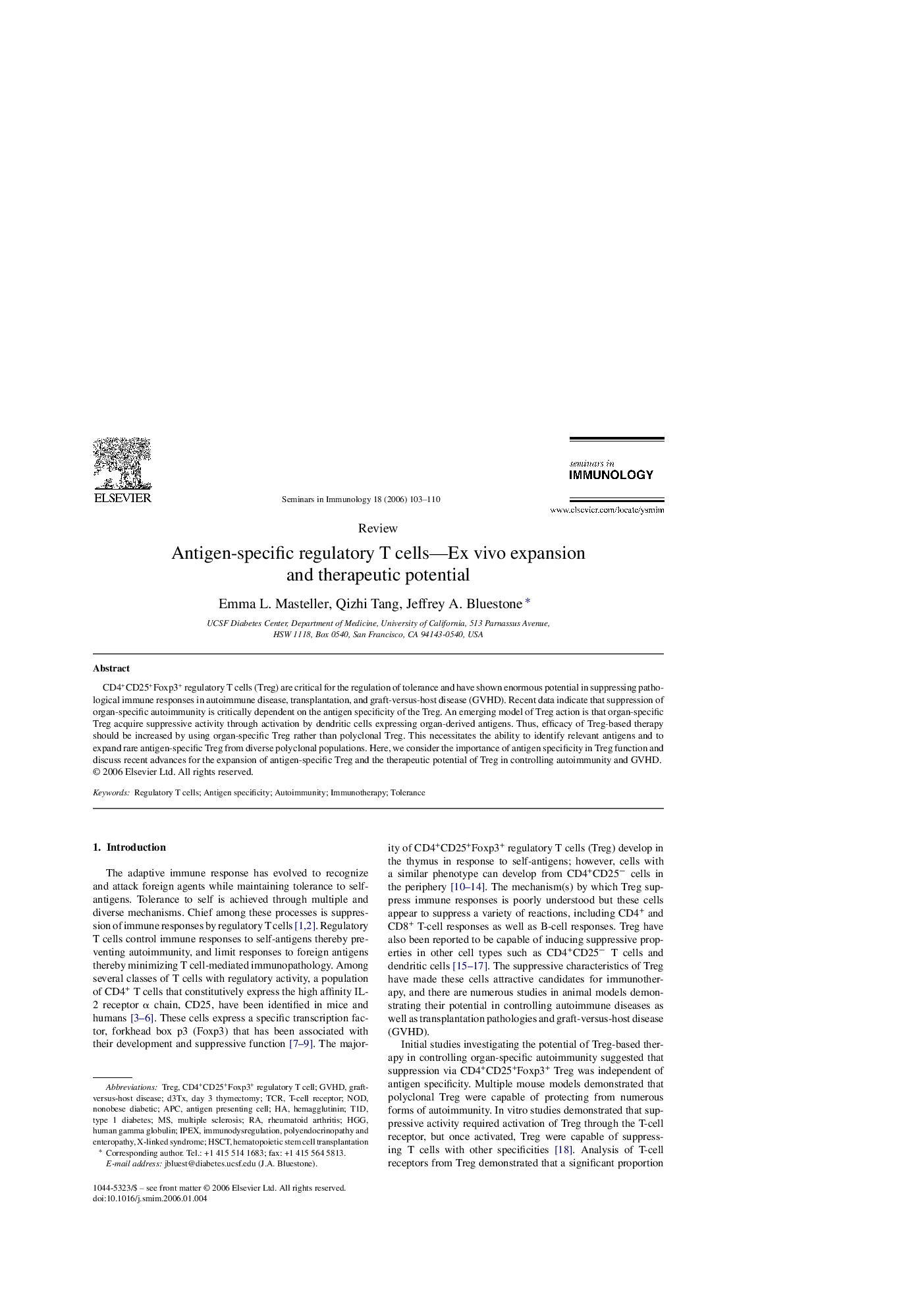| Article ID | Journal | Published Year | Pages | File Type |
|---|---|---|---|---|
| 3391757 | Seminars in Immunology | 2006 | 8 Pages |
CD4+CD25+Foxp3+ regulatory T cells (Treg) are critical for the regulation of tolerance and have shown enormous potential in suppressing pathological immune responses in autoimmune disease, transplantation, and graft-versus-host disease (GVHD). Recent data indicate that suppression of organ-specific autoimmunity is critically dependent on the antigen specificity of the Treg. An emerging model of Treg action is that organ-specific Treg acquire suppressive activity through activation by dendritic cells expressing organ-derived antigens. Thus, efficacy of Treg-based therapy should be increased by using organ-specific Treg rather than polyclonal Treg. This necessitates the ability to identify relevant antigens and to expand rare antigen-specific Treg from diverse polyclonal populations. Here, we consider the importance of antigen specificity in Treg function and discuss recent advances for the expansion of antigen-specific Treg and the therapeutic potential of Treg in controlling autoimmunity and GVHD.
